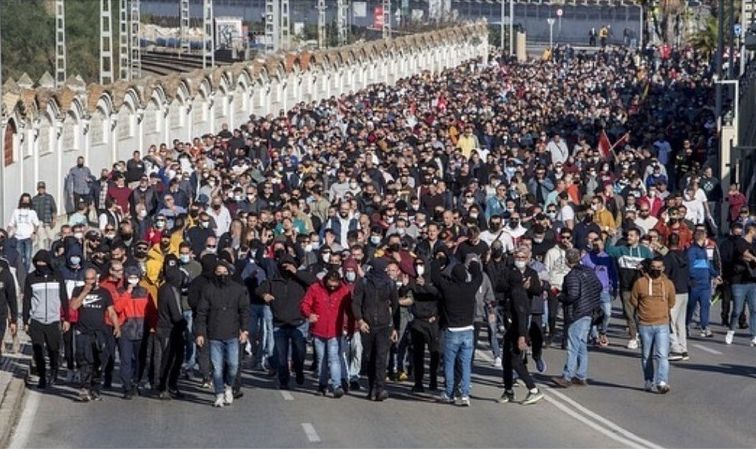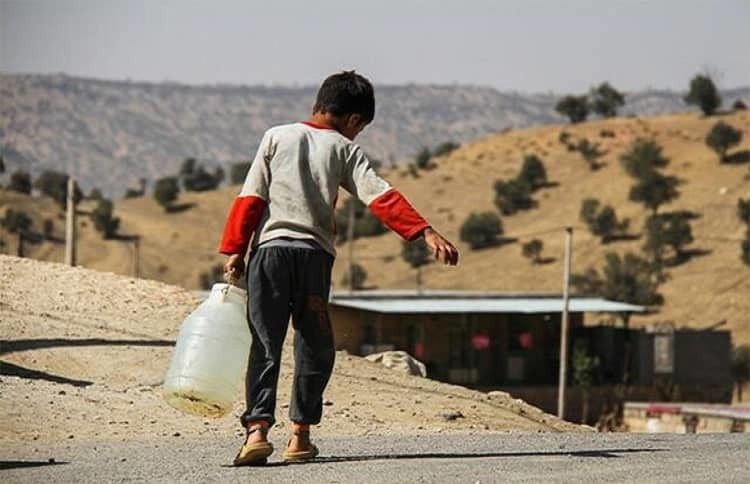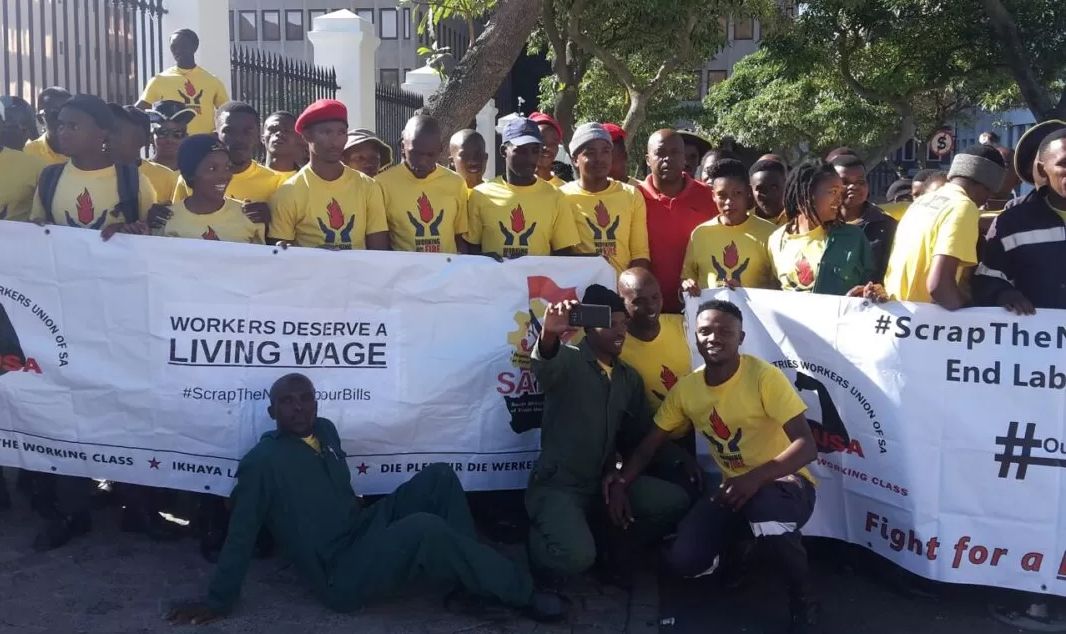John Hird is a member of Socialismo Revolucionario (ISA in the Spanish State).
Since the lifting of COVID19 restrictions, various sectors of the organised workers in the Spanish state have started to take action. The catalyst was the magnificent metal worker’s strike and movement in Cadiz at the end of 2021.
In the Basque Country, firstly in Alava, there was a wave of strikes in the Metal industry in May. Thousands of workers mobilised to force the employers to the negotiation table to concede wage rises and better conditions.
Next up were the metal workers in the Basque province of Bizkaia, on 23 and 30 June, and 1 July. All the Basque unions; ELA, CCOO, LAB and UGT, traditionally divided, joined forces on this occasion with a view to achieving a collective agreement that includes a wage increase in line with the Retail Price Index +1%.
A total of 52,000 workers were called on strike as the employers are refusing to negotiate on wages. The strike call was heeded by 80–85% of the workers, while 15,000 demonstrated in the streets.
The struggle is not over yet and the inter-union committee presented a strike calendar and a document containing 17 points that they want to include in the next collective agreement. The main stumbling block in the negotiations is the wage increase. The employers’ proposal is to raise wages by 2% until 2024 — well below the year-on-year RPI of 6.5%. As always, the employers demand “flexibility” for workers, which is a euphemism for worse conditions.
In addition, the unions are proposing a set of demands to strengthen the wage guarantee, reduce the annual working day by eight hours, limit temporary agency contracts to three months, address once and for all concrete measures in favour of gender equality. This means the LGTBI collective would be included in the harassment protocol. They also want safer working conditions with dangerous materials such as asbestos, to end the exploitation of subcontracted workers and introduce the right to care for children under 12 years of age and dependent persons.
Leadership not prepared for struggle
In neighbouring Cantabria there was also a magnificent strike of metal workers with 95% supporting the strike and 20,000 attending a demonstration in Santander, the capital of the province. However, there are lessons for workers in this struggle as a total victory was not achieved, despite the willingness of the metal workers to struggle. The mass pickets were big and militant. Unfortunately, the union leadership had not prepared for an all-out struggle. At the assembly attended by 1,200 workers where the union leaders presented a pre-agreement, workers chanted, ‘it’s not enough!’ ‘Let’s continue!’ Although a majority voted in favour of the agreement which did not meet all their demands, 242 voted against, while 400 abstained. This shows the need to develop a fighting and determined leadership of the unions and to link up and generalise each and all struggles. New times, new militant leaders are needed. Undoubtedly these people exist amongst the rank and file.
Mercedes
In the Basque capital, Vitoria-Gasteiz, production at the biggest private employer in the region, Mercedes has been brought to a complete halt. Workers are angry at having continued production all through the pandemic, while employers are refusing to hand over some of their vast profits. The Basque Government, led by the neo-liberal Basque Nationalist Party, is supporting the Mercedes’s bosses’ insistence they will not negotiate when the workers are striking.
In total 5,000 workers at the plant went on strike and according to the committee, 95% of them did so on the morning shift. This strike completely stopped production at the factory in Vitoria and has brought together hundreds of workers in the joint demonstration in the morning.
From early morning, hundreds of people gathered around the factory to protest. “It has been years since we have seen so many people on the picket lines”, said Igor Guevara, president of the committee.
The demands of the strike committee reflect a change in mood and consciousness of the workforce. Mercedes workers are demanding:
- NO loss of purchasing power.
- NO to extending flexibility, NO to the sixth night. (Employers are insisting that workers on shifts work six nights)
- NO to a ‘Model V’ that discriminates against new recruits.
- Regulate and agree the conditions of the people (around 500) who work weekends and public holidays.
Strikers support rights of women
Another aspect of the present strike wave is the intermingling of various struggles, with unions beginning to seriously take up the oppression of women and LGBTQ+ people. Mercedes was the plant where an historic, symbolic strike was held in support of Erika Tavares who was killed by her ex-husband in Vitoria-Gastiez, when her fellow workers walked off their shift for 30 minutes to mark their disgust at this horrific act. Since then, there have been more such expressions of feminist workers’ struggle.
In the Bilbao metro, many cleaners work on subcontracts. When one of them reported sexual harassment, the union organised a demonstration inside and outside the metro.
A woman on the bus was assaulted by her partner and the driver who tried to stop it was also attacked. The union responded by taking part in a concentration — a protest against the violence.
The most fighting and militant Basque union, ELA, organises many workers who were previously unorganised, such as local cleaners, health workers protesting against cuts and home care workers. Women workers deliberately link workers’ struggles to feminism by often dressing in purple at protests. The union has pushed for private companies to disclose wage levels openly and has helped women to see how they are discriminated against, and to protest against this.
The government’s own statistics show that more women are taking strike action. So far this year there has been a partial general strike, the women’s day strike on March 8th in Andalusia, Aragon, Catalonia, Galicia, and the Community of Madrid.
Of the total number of members participating in the March 8th General Strike, 20.0% were men and 80.0% were women.
By gender, 54,239 (64.8%) of workers participating in all strikes were women compared to 29,408 (35.2%) men. This is significant in that it shows women are taking the lead in industrial action in the first six months of 2022. These strikes are amongst the most low-paid and exploited sectors, which are mainly women.
Front-line workers now at strike front-line
Here are some examples. ELA, CCOO, LAB, ESK and UGT called a strike in Social Intervention in Alava on 17 and 22 June, because of the constant refusal of the employers, AISA, to guarantee a dignified standard of living and conditions. The unions also pointed the finger at the Provincial Council of Alava, the Vitoria-Gasteiz City Council and the Basque Government, as well as the owners of these privatised and precarious essential social services. This is a push back against years of neo-liberal privatisation and subcontracting policies carried out by all political parties.
Among the main demands of the unions, which represent around 1,000 workers, more than 75% of whom are women, are a wage increase linked to the RPI; a 30-hour annual reduction in the working day; more appropriate reconciliation measures; improved annual leave and bonuses.
These workers look after unprotected minors, vulnerable families, women victims of gender violence, people in situations of social exclusion, with mental health problems or addictions.
“We are an essential service. We attend to the most vulnerable groups in society, but we work in privatised social services,” say the workers. They regret that after the applause received during the pandemic, they now face institutional neglect. “During the lockdown, the institutions applauded and thanked us for our work. However, now they are threatening us with not going ahead with the tenders, if we don’t sign an agreement, a signature that would mean a reduction of our labour rights.” There is little surprise that after the experience of the last few years, these women workers are really angry and prepared to take industrial action.
Other sectors
There is hardly a sector where there is not unrest and plans for strike action.
The famous San Fermines fiestas in Pamplona could be affected at the beginning of July. The staff of Tele-Taxi in Pamplona say that “there will be no taxis in Sanfermines” if the management does not comply with the agreement that was already agreed upon.
A three-day strike took place in Correos (The Spanish Post Office), with 80% of employees supporting the strike and the paralysis of mail transport routes in the centres of the main cities of Spain. According to the unions, Correos were forced to paralyse transport routes in the centres of Madrid, Barcelona, Valencia, Seville, Valladolid, Zaragoza, Alicante, Las Palmas, Malaga, Bilbao, Tenerife, Santiago, Vitoria, Granada, Merida, Oviedo, and Mallorca.
The mobilisation turned into a “yellow tide” of T-shirts with the corporate colour, printed with the slogan “stop the dismantling, for the viability of the public postal service”, caps and hundreds of yellow balloons with the slogan “save the postal service”.
Doctors in Madrid’s hospitals went on an indefinite strike: “Before they applauded us and now we are asking them to listen to us”. Jesús Troya, doctor said: “We are annoyed at being taken for fools, society is tired of being treated like children”.
There will be a hot summer of strikes in various industries.
Ryanair struck in June, with the aim of forcing Ryanair to comply with the application of basic labour rights and court rulings, and to achieve an agreement. The dispute continues.
Cabin crew members of EasyJet airline in Spain have been called out for nine days of strike action during the month of July. The strike has been called by the Unión Sindical Obrera (USO) union for the first, third and last weekend of next month to protest against the deadlock in the negotiation of the agreement regulating working conditions.
The strike will take place at El Prat, Malaga and Palma de Mallorca airports on 1, 2, 3, 15, 16, 29, 30 and 31 July.
“Every strike strengthens and develops in the workers the understanding that the government is their enemy and that the working class must prepare itself to struggle against the government for the people’s rights.
“Strikes, therefore, teach the workers to unite; they show them that they can struggle against the capitalists only when they are united; strikes teach the workers to think of the struggle of the whole working class against the whole class of factory owners and against the arbitrary, police government. This is the reason that socialists call strikes “a school of war,” a school in which the workers learn to make war on their enemies for the liberation of the whole people, of all who labour, from the yoke of government officials and from the yoke of capital.” Lenin — On Strikes (1899)
Clearly the working class is stirring in the Spanish state. It is using its organisations to claw back what has been taken over the last few years. As well as the traditionally well organised sectors such as metal and the car industry, the most low-paid workers and especially women are prepared to struggle. Public sector workers, health workers and teachers are moving into action too. There is a clear consciousness that it was the working class which kept society going during the pandemic at great cost, while the bosses made massive profits and now is the time to redress the balance.
Workers involved in the many strikes taking place at the moment are learning fast. They are learning that many of the present union leaders, are holding back the struggle and are not prepared to go all the way.
Another important lesson, which is becoming clearer every day, is that all the various strikes and struggles need to be unified. That puts on the worker’s agenda again the question of regional general strikes and even a general strike on a Spanish state level in the next period.




